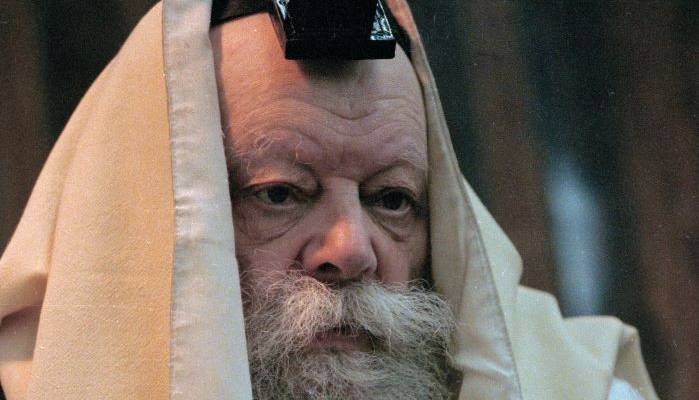“The Holy One, blessed be he, did a wondrous thing when He himself concealed [treasures] in the depths of the earth,” intoned the Lubavitch Rebbe, Rabbi Menachem Mendel Schneerson.
By Darice Bailer, TPS
The miraculous discovery of precious stones in the sands of Israel began with a Biblical blessing followed by a prophecy over 3,000 years later. But it took a pious man named Abraham (Avi) Taub and a 23-year search by his mining company to find the gems and prove that the words of two great spiritual leaders were true.
In the Book of Deuteronomy, shortly before his death, Moses spoke about treasures hidden in the sand of the Tribe of Zebulun in what is now Northwest Israel. Then, in 1988, Rabbi Menachem Mendel Schneerson — the Chabad-Lubavitch “Rebbe” and international Jewish leader — told Haifa’s Mayor Arye Gurel that the city’s uniqueness is that it has both a sea and a valley, and that in the valley are precious stones and gems.
Rabbi Schneerson cryptically added, “The Holy One, blessed be he, did a wondrous thing when He himself concealed them in the depths of the earth.”
A woman from Chabad saw a video of that conversation and told Abraham Taub about it. Taub was well-known in Chabad circles as a jeweler with many years of experience.
His father, Chanan (Chune) Taub, was a Holocaust survivor who had founded one of Israel’s first commercial diamond polishing factories in Netanya after fighting in the Jewish underground during Israel’s pre-state years.
Abraham Taub joined his father’s business and expanded it from polishing and trading diamonds to producing jewelry sold in Tel Aviv, London and New York.
Taub had met Rabbi Schneerson for the first time in 1981. This rabbi with his soulful compassionate blue eyes even restored Taub’s faith after Taub lost it at the age of 22 while seeing friends die during Israel’s 1973 Yom Kippur War. The Rebbe healed him.
“He told us later that one look in the Rebbe’s eyes was enough,” Taub’s daughter Tali Shalem recalled.
On business trips to New York, Taub would make a point to see Rabbi Schneerson, and as he passed the great rabbi in the middle of a long line of visitors, the Rabbi would wish Taub “blessings and success.”
Taub watched the video of the conversation between the Rebbe and the Mayor. If the Rebbe said there were hidden gems in Israel, Taub believed it was only a matter of money, effort and time until he would find them.
In 1999, Abraham Taub and several other Chabad Jews established Shefa Yamin Ltd. (now Shefa in Israel G.M. Ltd.) on a mission to bore into the earth and find those gemstones. With permits from the Commissioner of Mines, Shefa was and is the only gem mining company in Israel.
Exploration began right away. Initial drilling in the Kishon riverbed and Zevulun Valley in northern Israel uncovered preliminary specimens of sapphires, garnets and spinels, but nothing dramatic.
Taub continued to explore an area covering 488,366 dunams (48,836 hectares). He would not be discouraged by scientists who urged him to abandon the project.
Rather, Taub said he listened to a different expert, “one who bases his facts, not only on science, but also on faith, tradition, and sacred sources,” said Shalem. “He never gave up.”
Taub continued digging, and in 2009, discovered what the University of Bern, Switzerland would certify as the largest piece of moissanite, a rare mineral, ever found.
In 2014, Taub also found specimens of another gemstone which he was unable to identify. Working with the Department of Earth Exploration at Mercury University in Australia, they were identified as a completely new mineral which was named the Carmel-Sapphire.
The Carmel-Sapphire is a rare mix of light and dark blue sapphire resembling a night sky. The sapphire is even embedded with a new mineral once thought only to exist in outer space. Four years later, Carmel Sapphire was chosen as the 2018 Mineral of the Year by the International Mineralogical Association.
Shefa has since unearthed blue, green and yellow sapphires, rubies, dark-red garnets, shiny black spinels, rare natural moissanite, hibonite, and more in the earth and sand, proving Moses and Rabbi Schneerson right.
“All of the geologists, all of the experts were in shock,” Abraham Taub told a reporter from Breaking Israel News after his mining discoveries, finding precious stones no other country had.
Israel’s Ministry of Energy issued a Certificate of Discovery in March 2020 confirming that a deposit of precious gems was found in the areas where Shefa holds a license to mine. Sadly, Taub never saw it. He died of cancer five months before at the age of 68.
Tali Shalem, who worked beside her father for 15 years, is now the CEO and Director of her father’s company. “We are part of something bigger than us, to make my father’s dreams come true and tell the world that the Rebbe was right,” said Shalem, an Orthodox mother of three with long brunette hair and gold-rimmed glasses.
In November, Shefa opened a new visitor’s center – the only one of its kind in Israel.
Located next to the Shefa’s mining complex in Acre, guests can discover how the jewels are unearthed, sifted, sorted, washed, cut, polished and set into stunning necklaces, drop earrings, bracelets and rings with sapphires, burgundy and red garnets, or black spinels.
Shalem said the company opened its main showroom next to the mining activity to give the customer a magical shopping experience that begins with touching the sand and ends with touching the rare luxury jewelry, embedded with jewels mined in the sacred land for a mystical connection to the country’s holy origins.
Israel is a start-up nation, Abraham Taub’s daughter said. “Now we have a gemstone nation too.” Her father believed faith could move mountains.



